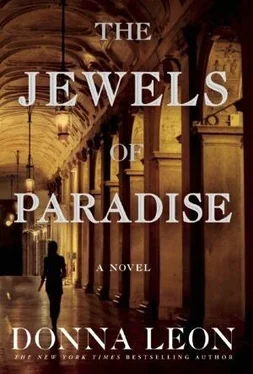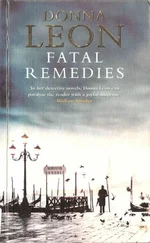The nausea had passed, and Caterina found she was hungry. She went into the kitchen and put some rice on to boil. On the way back to the sofa, she paused in front of the mirror next to the front door and asked herself out loud, “Have you been watching too much television?” Since Caterina had never owned or lived with a television and never watched it, the question was rhetorical; she asked it as a way of commenting on the melodrama of the story she was reading.
It was not, to say the very least, a love-filled marriage. Truth to tell, Georg Ludwig and Sophie hated each other. The book recounted an incident when an argument between them had so escalated that he literally had to be pulled off of her. Georg had a series of mistresses and, in fact, when he subsequently went to England to become king, he packed up two of them—whom the English looked at and quickly nicknamed the Maypole and the Elephant—and took them along. Sophie Dorothea seemed to have limited herself to only one, and everything Caterina could find suggested that her error was not the affair but her failure to keep it secret.
Steffani, she reminded herself—if simply to justify to herself continuing to read this lurid stuff, like something straight out of a scandal magazine—was involved inasmuch as the two lovers, Sophie Dorothea and Count Philip, who sent each other hundreds of love letters, many attempting to disguise their passion by quoting the lyrics from Steffani’s operas. In one letter, to show his eagerness, Königsmarck mentions the swift duet, “Volate momenti,” where the lover begs both time and the sun to quicken their pace to thus shorten the time of the lovers’ separation. If the things she had read in the Marciana were to be believed, these letters were being intercepted and read by Countess von Platen, believed to be the former lover of Königsmarck and certainly the former mistress of Ernst August, who was the father-in-law of Sophie Dorothea.
Caterina stared into space. “Let me see if I’ve got this straight,” she told herself aloud. “These two fools wrote love letters back and forth in opera lyrics, but a mistress Königsmarck had dumped, who just happened also to have been the mistress of the father-in-law of her ex-lover’s current mistress, was reading them, and she blew the whistle on the lovers.” She resisted the urge to go over to the mirror again and check to see if she had grown a second head.
She smelled the rice and went into the kitchen to turn off the flame. She took off the top and spooned some of it into a bowl, added more salt, and took it back into the living room with her.
Things became even more interesting. Almost immediately after Königsmarck’s disappearance, a certain Nicolò Montalbano, a Venetian who had been hanging around the court of Hanover for almost twenty years writing the occasional opera libretto, was reported to have been paid the astonishing sum of 150,000 thalers by persons unknown, whereupon he too promptly disappeared.
Poor Sophie Dorothea was divorced by her creep of a husband, Georg Ludwig, on a trumped-up charge that she had abandoned the marriage bed, and then old Georgie sent her off to rot away in a castle for thirty years and wouldn’t let her see her kids. The author quoted a lovely but unreliable legend that she delivered a deathbed curse on Georg, and sure enough, he dropped dead in less than a year. Even so, she was to have no satisfaction from her curse, for she died before Georg did and so never saw her son become King George II of England although, as Caterina remembered, he was little better than his father. Makes a person better understand the current royal family, she thought.
She sat back in her chair, then got up and went over and stretched out on the sofa, the bowl on her stomach. She stirred the rice, letting it cool. Ernst August had spent a fortune and worked diplomatic miracles to be chosen as an elector, some sort of big deal title that only a dozen or so aristocrats got to have, and they in turn elected the Holy Roman Emperor. Yes, a big deal. But he had to wait a couple of years before he could be crowned or anointed or whatever it was that happened to turn him into an elector. While he was waiting for this to happen, he’d have had to keep his nose clean, and he’d have had to see that his family didn’t disgrace him in any way and thus scotch his chance to become an elector in his full rights.
“So there you are, Monsieur Poirot,” she said out loud, waving her fork at the stout figure who did not stand by the door, “you have your first suspect.” Instantly she added, “And his son Georg Ludwig is the second.” And Steffani, she wondered, how much would he have known? He was court musician, diplomat; his libretti served as the language of love. The affair was an open secret. Surely he would have known of it.
She ate some rice, chewing each mouthful a long time. At one point, she remembered the face of the man who had followed her, and her throat closed up for a moment. Again, out loud, she said, “I will not allow this to happen to me.” She did not define what this was, and after a time she finished the rice and went to bed and slept.
THE NEXT DAY DAWNED CLOUDLESS AND BRIGHT, AND THE night’s sleep had restored Caterina’s usual energy and good spirits. She didn’t think about the man who had followed her until she left the house and went into a bar for a coffee. The barman recognized her and offered her a brioche with her coffee even before she asked for it, and she recalled thinking, last night, that one possibility for safety would be to ask one of the men in this bar to walk her home. In the bright light of an April morning, the very idea seemed ludicrous.
She had slept late and had not bothered to read her emails before she left the apartment. When she got to the Foundation, she said good morning to Roseanna, who said that she hoped the sign would keep people out as long as Caterina was working on the documents.
She went upstairs and turned on the computer. When she had lived in other countries, she had read the Italian press online every morning, but she had abandoned the habit in recent years. It was all time wasted, she feared. The frequency with which certain faces appeared on the front pages changed, but none of them ever disappeared. Only death swept away the men who had devoted themselves to politics. Theft, involvement with the Mafia, payments to transsexual prostitutes, corruption, missing millions—none of this removed them. Convict them of anything, and they were still there. Turn your back and they changed political party or reinvented themselves, changed their hairline, found Jesus, or wept on television while begging their wives for forgiveness, but still they were there. Only death removed them from the scene, though sometimes not even then, for many of them came back as newly renamed streets or piazzas.
Better to read her emails. There were three, but the first one she opened was from Cristina.
“Dear Cati, Destroyer of My Work Routine, for you’ve gone and done just that, and not for the first time. There I was, happily busy with my chapter on Pope Pius XII (what the likes of you would call a Nasty Bit of Goods, I fear) (an opinion I am coming to share) (which I ought not admit) (but do) and his various evasions and prevarications, when your request, like a dog that has found a very interesting bone, drags in Clement VIII and drops him at my feet, to make no mention of the question of castrati, the title of abbé, and the various deceptions to which men in power are prone. Just as a bit of history, you might be interested to learn that Pius X banned castrati from the Sistine Chapel. In 1903. You want deception, I give you deception, my dear.
“As you can see, I’ve been busy in your interests. I’ve found—not without difficulty—a breve from Clement VIII, declaring that castration was sanctioned for singing in ‘the honor of God.’ And I ask you here, Cati—and I’m not joking—please not to comment on this or try to provoke me about it: its existence is sufficient provocation.
Читать дальше












